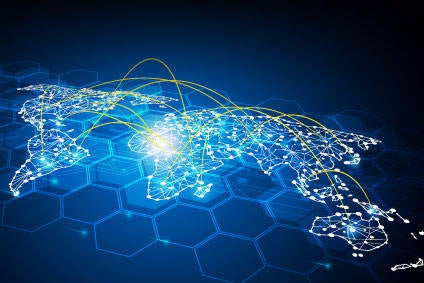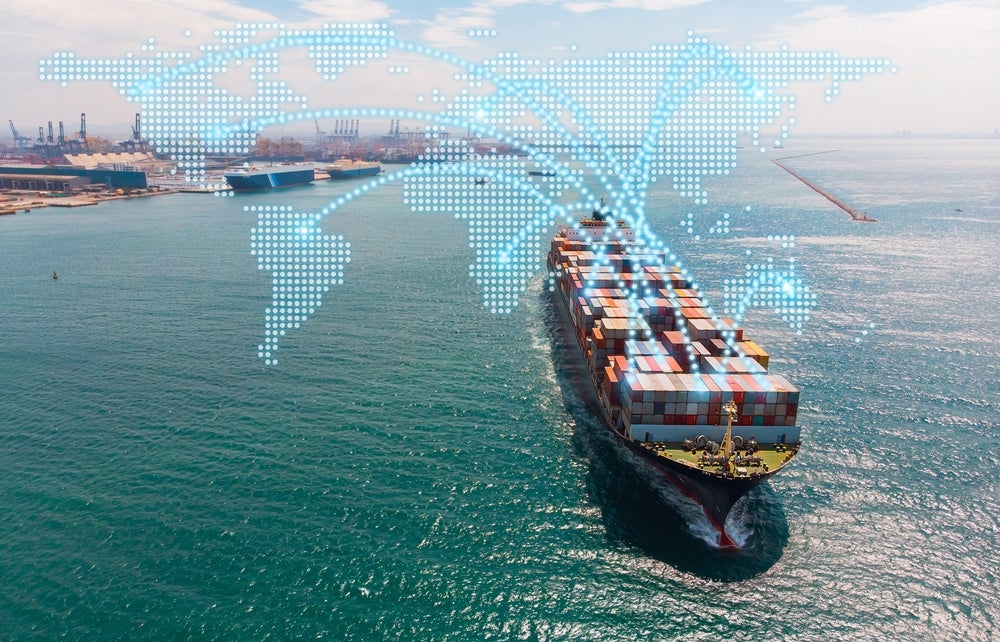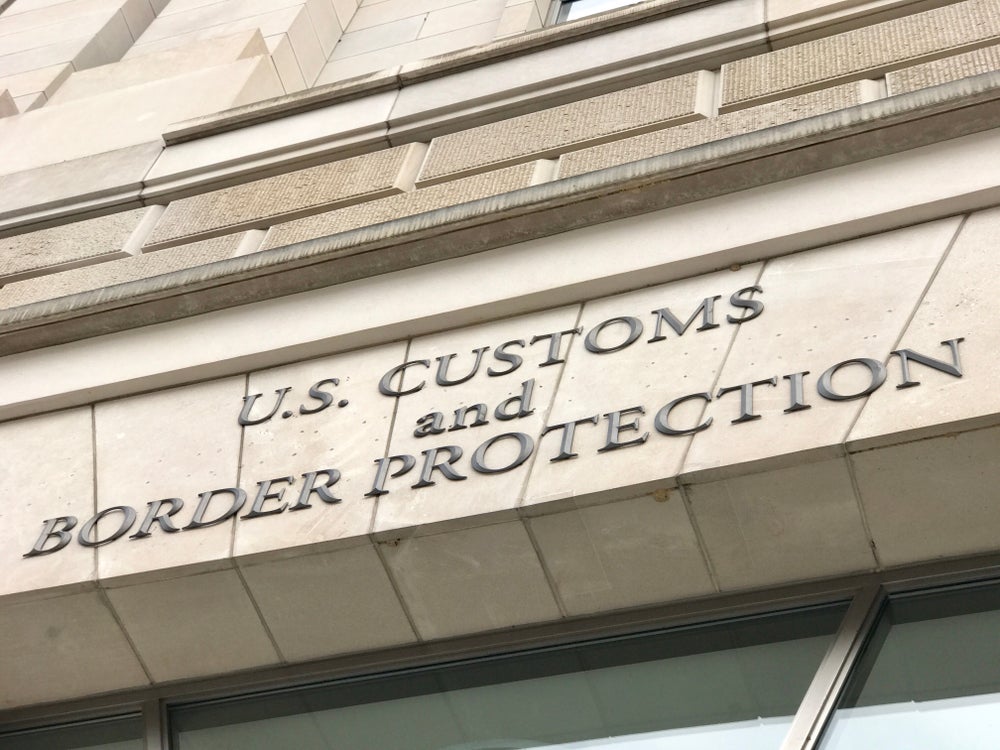
Brands shifting to new sourcing markets as a result of rising uncertainty over trade policies, mass migration, and cybersecurity have been identified among the biggest supply chain risks facing firms during 2019.
According to a new report from auditing, compliance and risk management specialist BSI (the British Standards Institution), five of the largest risks to supply chains during 2019 include exposure to varying risks in Africa; dramatic policy shifts; increased migration; cybersecurity; and changes to the US Customs and Border Protection’s Customs-Trade Partnership Against Terrorism (CPTAT).
“We’re seeing key shifts to global supply chains this year, driven by quite dramatic changes in the geopolitical landscape,” says Jim Yarbrough, global intelligence program manager at BSI. “The concern is that as supply chains change – with Chinese companies moving operations to Africa, for example, or the US sourcing goods from other Southeast Asian nations – major implications will also evolve.
Increased exposure to labour exploitation, terrorism, corruption and natural disasters must be a consideration for companies making changes to their supply chain, and best practices must be maintained in order to prevent threats to business continuity or corporate social responsibility
“Increased exposure to labour exploitation, terrorism, corruption and natural disasters must be a consideration for companies making changes to their supply chain, and best practices must be maintained in order to prevent threats to business continuity or corporate social responsibility.”
The Africa challenge
See Also:
Companies that have manufacturing operations in China are increasingly looking to Africa as a new sourcing market as a result of the ongoing trade spat between China and the US. But BSI warns in its Screen Global Intelligence Report: Top Potential Supply Trends for 2019 that companies must weigh up the risks of the move.
How well do you really know your competitors?
Access the most comprehensive Company Profiles on the market, powered by GlobalData. Save hours of research. Gain competitive edge.

Thank you!
Your download email will arrive shortly
Not ready to buy yet? Download a free sample
We are confident about the unique quality of our Company Profiles. However, we want you to make the most beneficial decision for your business, so we offer a free sample that you can download by submitting the below form
By GlobalDataWhile firms with Chinese supply chains are recognising the lower costs of labour in some African countries and the cheaper shipping costs to the US and EU, BSI says some of the risks set the operational environment apart from that of Asia. These include the relatively unchecked risk of terrorism in African countries where 23% of all supply chain terror incidents take place, compounded by corruption among security and customs personnel.
One country that has already seen an influx in relocated manufacturing is Egypt, with Chinese apparel manufacturers reportedly setting up facilities in the African country in order to avoid US tariffs and also exploit the trade benefits of being located in a Qualifying Industrial Zone.
Chinese companies are attracted to Egypt not only for its shorter shipping times to both the United States and Europe as well as its much lower wages, but also for the Qualifying Industrial Zones programme. Established by the United States in 1996, companies that source at least 10.5% of a product from Israel can then finish production in Egypt and enjoy tax exemptions from the United States ranging between 5-to-40%. Other free trade agreements that Egypt has signed further strengthen the country’s appeal as an alternative destination for manufacturing.
But, says BSI, supply chains relocating would also incur different challenges with significant and often interconnected security, business continuity, and corporate social responsibility risks all posing a threat.
While core child labour, forced labour, discrimination, and poor working conditions are risks to supply chains whether in Africa or in Asia, the frequent turnover of political regimes in many African countries could hinder efforts to provide consistent worker health and safety protections. Widespread corruption is also another factor that can slow the enforcement of human rights protections in Africa.
In terms of business continuity, deficiencies in road, rail, and seaport infrastructure often create significant delays to shipments in the region, while other extraneous factors including low-level conflict, inefficient practices and technology, and bribery and corruption, further contribute to man-made disruption to supply chains in Africa.
CPTAT changes
Among the other supply chain risks during 2019 that have been identified in the report is the requirement for companies certified under the US Customs and Border Protection’s Customs-Trade Partnership Against Terrorism (CPTAT) to meet new criteria for certification.
CPTAT members have enjoyed various trade benefits by meeting select security criteria that have remained unchanged for almost the last 20 years. However, noting the changing landscape of threats to supply chains around the world, Customs and Border Protection (CBP) initiated a review of the Minimum Security Criteria (MSC) needed to be met in order to obtain certification under the CTPAT programme. Now, after conducting the review of the MSC in partnership with industry leading professionals, CBP is expected to be close to implementing a new version of the MSC, presenting both prospective and existing certified companies with new challenges in the pursuit of ensuring that supply chains remain secure.
As the revised criteria for CTPAT are unveiled, companies will need to undertake new efforts to achieve supply chain security and mitigate emerging risks.
Mass migration still an issue
Ongoing mass migration once again continues to pose both security and corporate social responsibility risks. This year’s report records an increase in stowaway and labour exploitation risks stemming from migrants travelling along three major flows: Central to North America, Intra Southeast Asia, and Africa and the Middle East to Europe. BSI has also noted regression in countries such as Brazil – where budget cuts are reducing the resources available to carry out inspections – that could increase the risk of migrant labour exploitation.
Approximately half (48%) of all corporate social responsibility (CSR) incidents recorded by BSI in the last year involved migrants. The group says the “often desperate need” for income leads many vulnerable individuals into labour exploitation. BSI believes this issue will remain key for supply chains in 2019, and companies must invest in a more thorough understanding of their supply chain to truly assess the risk of migrant labourer exploitation.
Dramatic policy shifts
Recent shifts in political ideology in the governments of Brazil, Mexico, the UK, India, and the US are “setting the stage for an eventful 2019” says BSI.
President Bolsonaro in Brazil has swiftly undertaken efforts that may pose corporate social responsibility risks for some industries operating in Brazil, particularly in relation to the rights of workers, the LGBTQ community, and indigenous territories. BSI recommends companies take a more active due diligence role on business partners in Brazil, to fill gaps left by the government’s removal of some regulatory requirements.
Mexico’s president is undertaking new initiatives to curtail corruption that has historically underwritten organised crime, cargo theft, and oil theft in the country. The ramifications of such initiatives may have sweeping consequences for business continuity and cargo security, but despite President Obrador’s actions, BSI expects that security challenges will continue to affect businesses in the coming year, in particular, in-transit cargo theft.
The US-China trade dispute has raised new concerns related to intellectual property protections and the relocation of relevant facilities for a host of businesses. However, companies looking to other Southeast Asian countries should weigh the costs of tariffs against the cost of increased risks to their supply chains. Exposure to child labour, forced labour, and natural disasters are each prevalent in other Southeast Asian countries.
The outcome of negotiations on Brexit remains unclear, creating ripples of uncertainty through supply chains operating within and through the UK and the European Union.
And India’s ongoing elections in April and May could create a shift in politics with effects on global supply chains. Workers’ dislike of many recent policies, with strikes over low wages and fuel prices, could cause immediate disruption and longer-term changes.
Cybersecurity
Within this new global landscape, cybersecurity stands as an overarching and multi-faceted struggle for all parties throughout the supply chain. Securing data and facilities in a fast-paced and modular world connected by the Internet of Things is an emerging challenge that all supply chain professionals undertook in 2018 and will continue to grapple with in 2019.







